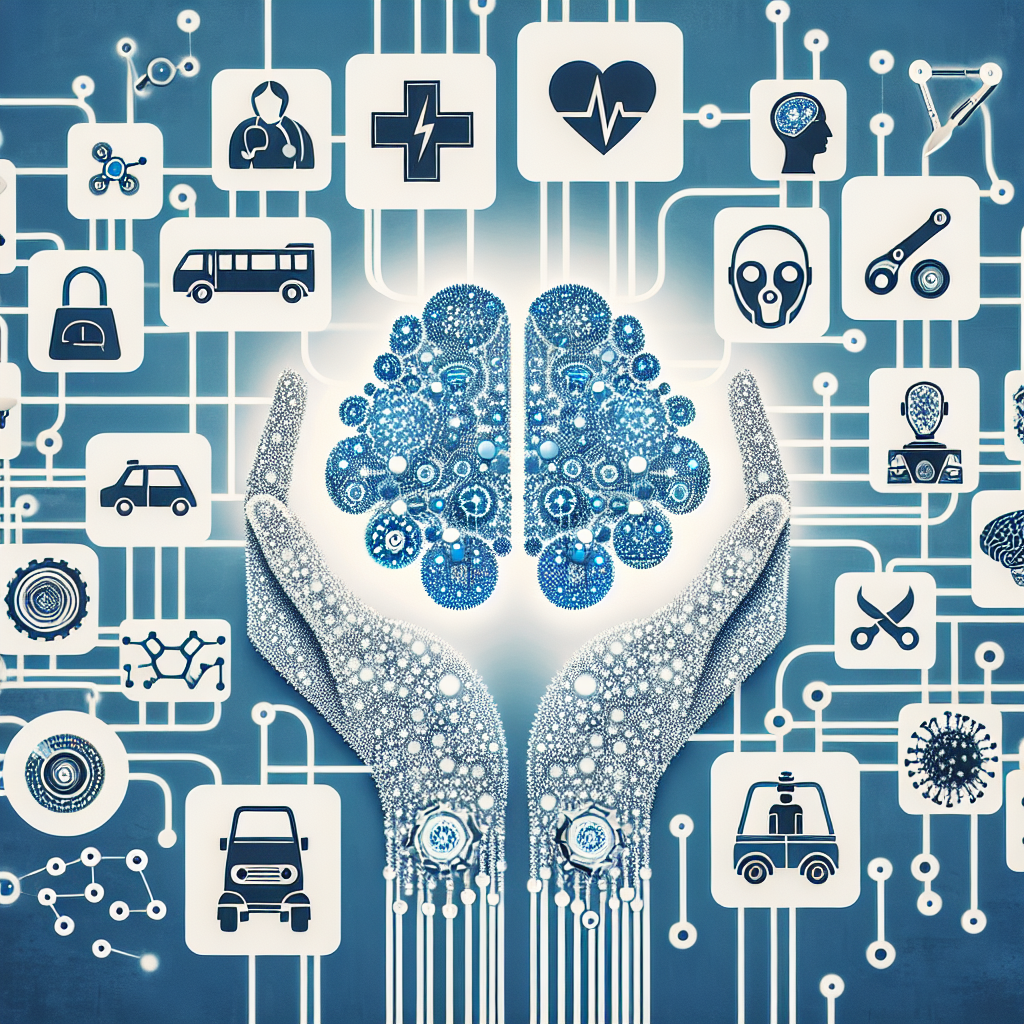Artificial General Intelligence (AGI) is a term that refers to the development of machines that can perform any intellectual task that a human can. This technology has the potential to revolutionize various industries, including healthcare, transportation, and more. In this article, we will explore the impact of AGI on these sectors and how it can improve efficiency, accuracy, and overall outcomes.
Healthcare
One of the most promising applications of AGI in healthcare is in medical diagnosis and treatment. With the ability to process vast amounts of data and identify patterns that humans may miss, AGI can help doctors make more accurate and timely diagnoses. This can lead to early detection of diseases, improved treatment plans, and better patient outcomes.
AGI can also be used to develop personalized medicine, where treatments are tailored to each individual based on their genetic makeup, lifestyle, and other factors. This can lead to more effective treatments with fewer side effects.
In addition, AGI can help streamline administrative tasks in healthcare, such as patient scheduling, billing, and insurance claims processing. This can free up healthcare professionals to focus on patient care and reduce administrative costs.
Transportation
AGI has the potential to revolutionize the transportation industry, particularly in the development of autonomous vehicles. These vehicles can use AGI to navigate roads, avoid obstacles, and make split-second decisions to ensure the safety of passengers and other road users.
Autonomous vehicles can also improve traffic flow and reduce congestion, as they can communicate with each other to coordinate movements and avoid bottlenecks. This can lead to shorter commute times, lower fuel consumption, and fewer accidents.
AGI can also be used in the development of air traffic control systems, where it can help manage the increasing complexity of air traffic and improve safety and efficiency.
Other Industries
AGI has the potential to revolutionize a wide range of other industries, including finance, agriculture, manufacturing, and more. In finance, AGI can be used to analyze market trends, identify investment opportunities, and manage risk more effectively.
In agriculture, AGI can help farmers optimize crop yields, reduce waste, and improve sustainability. By analyzing soil conditions, weather patterns, and other data, AGI can help farmers make more informed decisions about planting, fertilizing, and harvesting crops.
In manufacturing, AGI can be used to increase efficiency, reduce errors, and improve quality control. By analyzing production processes and identifying bottlenecks, AGI can help manufacturers streamline operations and improve productivity.
FAQs
Q: What is the difference between AGI and artificial intelligence (AI)?
A: Artificial General Intelligence (AGI) refers to machines that can perform any intellectual task that a human can, while artificial intelligence (AI) refers to machines that can perform specific tasks or solve specific problems. AGI is more versatile and flexible than AI, as it can adapt to a wide range of tasks and situations.
Q: How far away are we from achieving AGI?
A: The development of AGI is still in its early stages, and there is much work to be done before machines can match human intelligence in all its complexity. Some experts believe that we may achieve AGI within the next few decades, while others believe that it may take longer.
Q: What are the ethical considerations of AGI?
A: As with any new technology, there are ethical considerations to be taken into account when developing AGI. These include issues such as privacy, accountability, bias, and the impact on jobs and society. It is important for developers, policymakers, and the public to address these concerns to ensure that AGI is used responsibly and ethically.
In conclusion, Artificial General Intelligence has the potential to revolutionize healthcare, transportation, and many other industries. By leveraging the power of AGI, we can improve efficiency, accuracy, and overall outcomes in a wide range of applications. While there are still challenges to overcome, the future of AGI looks promising and exciting.

